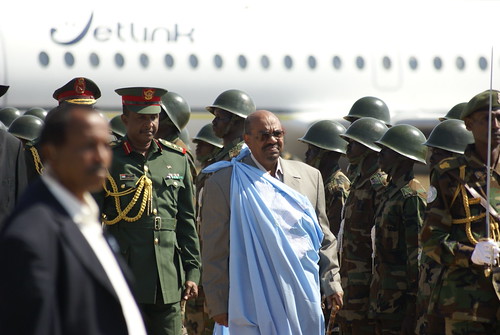
Sudanese president Omar al Bashir in the southern capital of Juba. Flickr/Al Jazeera English. 1/4/2011.
Yesterday, the International Crisis Group (ICG) released a negative analysis of the situation in northern Sudan titled “Divisions in Sudan’s ruling party and the threat to the country’s stability.”
It argues that the National Congress Party (NCP) has not addressed the root causes of Sudan’s chronic conflicts and has exacerbated ethnic and regional divisions. The country is deeply divided as it moves forward after the secession on 9 July 2011 of South Sudan.
The NCP has mobilized its security apparatus to suppress any revolts, has decided to end the debate about Sudan’s diversity and identity, remains committed to an Arab-Islamic identity for all Sudanese and is ready to sub-divide key states to accommodate political fiefdoms.
The ICG writes that power is increasingly centralized in a small clique around President Bashir. Deeply divided and more concerned with staying in power, the leadership more often reacts to events rather than implements a carefully conceived national program. The public dispute between Nafie Ali Nafie and Ali Osman Taha is representative of these divisions.
The ICG urges that the NCP accept a free and unhindered national dialogue to create a national stabilization program that includes defined principles for establishing an inclusive constitutional arrangement.



